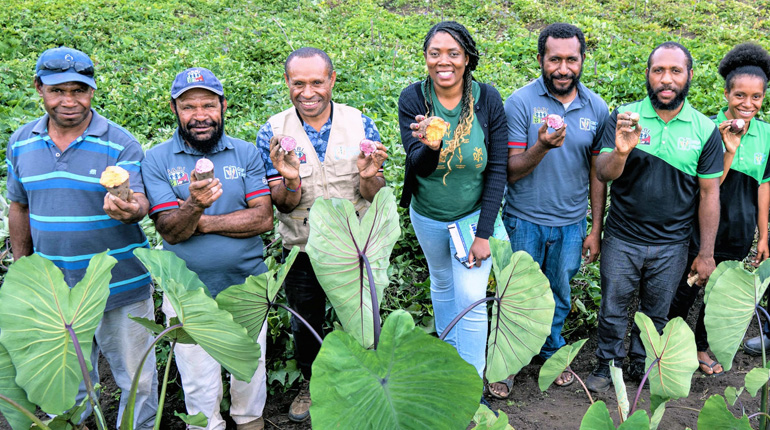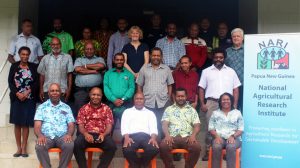The National Agricultural Research Institute (NARI) recently shipped a first batch of duplicated (back-up) true seeds of Papua New Guinea’s (PNG) sweetpotato varieties to Norway to be preserved at the Svalbard Global Seed Vault.
NARI accomplished this milestone on 30 September under its Biodiversity for Opportunities, Livelihood and Development (BOLD) Project. BOLD is led by the institute’s Aiyura Highlands Regional Centre, in Eastern Highlands. The centre manages the national sweetpotato gene-bank which has been conserving over 800 of the rarest PNG sweetpotato varieties, since the 1980s.
The project identified and used over 500 landraces from the national sweetpotato genebank to regenerate more than 300, 000 true seeds. These seeds will help to improve ongoing work to conserve diversity of our national sweetpoto varieties.
The generated true seed duplicates (back-up) were processed, labeled and allocated to three distribution batches. The first batch of the seeds at the Svalbard Global Seed Vault can remain viable for up to 100 years, under optimum conditions. They are preserved under a condition known as the ‘black-box’ safety duplicates. This arrangement privileges only NARI, as the depositor, to access the seeds.
The second batch will be sent to the regional genebank at the Centre for Pacific Crops and Trees, in Fiji later this month. The last batch will be maintained domestically at the national gene-bank, at Aiyura. These seeds will serve as back-ups against any drastic decline of sweetpotato genetic diversity to sustain healthy levels of food and nutritional security for PNG and the region, into the future.
BOLD is a three year project that has run since 2022 in partnership with the Global Crop Diversity Trust. Through the partnership, NARI sources funds to advance its work on conservation and utilisation of local sweetpotato diversity.
This work is more critical nowadays with alarming rates of losses of crop genetic resources and threat to food security around the world. Increased environmental, technological and social changes, as well as the emergence of new pests and diseases, are the main factors for this predicament
The project gives PNG the opportunity to contribute to ongoing national, regional and global efforts to address the erosion of invaluable crop and plant genetic resources.
The generation and conservation of true seeds provides the possibility of breeding improved varieties that can adapt to evolving farming conditions.




